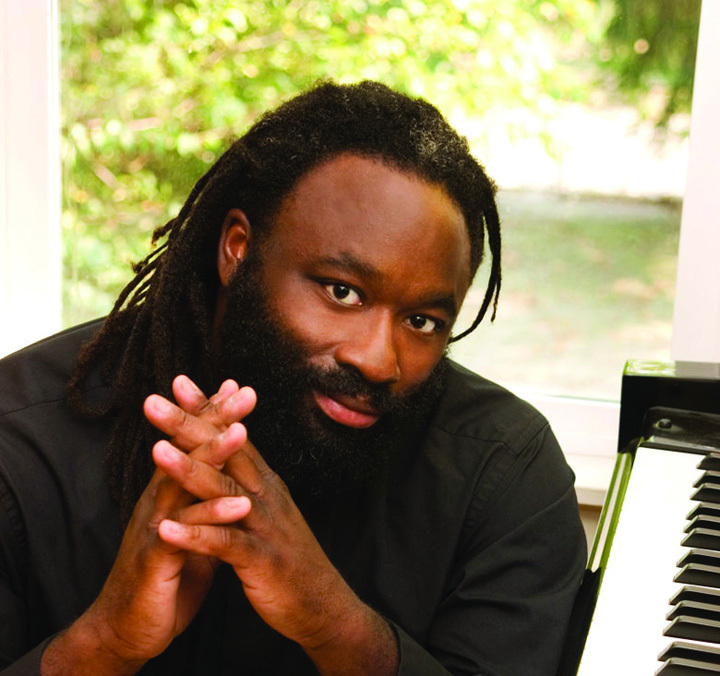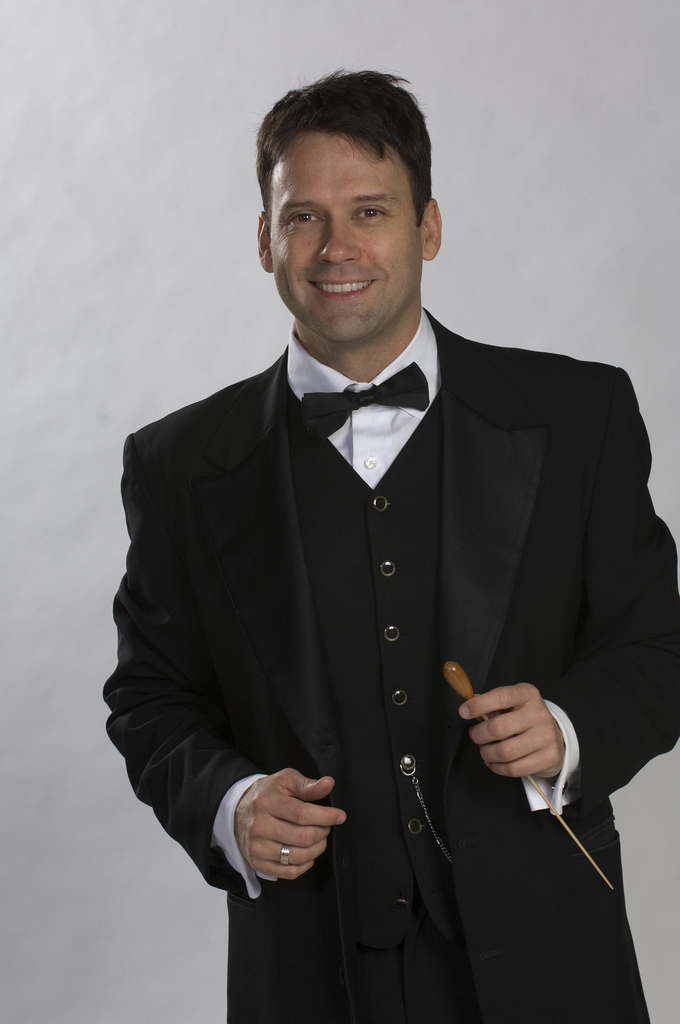When pianist Awadagin Pratt came to Portland for the first time, he was relatively unknown. It was the late 1980s, and he came up from Baltimore for a concerto competition sponsored by the Portland Symphony Orchestra.
He didn’t win, but he had a great time in the city and made some friends.
Beginning this afternoon with a concert at Merrill Auditorium, Pratt returns to Portland to help the PSO launch a new season of classical music. And today, everybody knows his name.
Pratt is among the most esteemed concert pianists of his generation. His CDs are best-sellers in classical music circles, and his live performances draw capacity crowds across the globe.
He joins the orchestra at 2:30 p.m. today and 7:30 p.m. Tuesday for its season-opening celebration. Pratt will perform Beethoven’s Piano Concerto No. 5, “Emperor.” The program also includes Brahms’ Symphony No. 4 in E minor and contemporary composer Michael Torke’s “Bright Blue Music.”
“This is a guy who has been to the White Houses of the first President Bush, Clinton and Obama. He is as well-respected a pianist as there is,” says PSO music director Robert Moody. “He has the greatest amount of depth of any pianist I have ever played with. He is clearly a deep thinker, and he has a maturity to his playing that is unique.”
Moody considers Pratt a dear friend. They have known each other for years, and they stand together as contemporaries in the classical music world.
Moody likes to talk about “the aura of Awadagin. He’s got this great Bob Marley look with his dreadlocks, and he speaks in a low voice. But he displays an interesting calm in his presence when you are around him. He is not a flamboyant, flashy kind of guy, but there is this mammoth energy under the surface.”
That energy has carried Pratt to remarkable heights. In 1992, just a few years after his initial visit to Portland, he won the Naumburg International Piano Competition. Two years after that, he received an Avery Fisher Career Grant.
He has played in all the important halls — Lincoln Center, the Kennedy Center, the Dorothy Chandler Pavilion in Los Angeles, Chicago’s Orchestra Hall. He’s performed with all the prestigious orchestras, as well — the New York Philharmonic, Minnesota Orchestra and the Pittsburgh, Atlanta, Baltimore, St. Louis, National, Detroit and New Jersey symphonies, among others. His summers find him traveling to festivals across the globe. He is in demand and hard to book.
In a phone interview last week, Pratt said he has always happily recalled his brief time in Portland, and often wondered if he would have the chance to come back and perform. When he learned his buddy Moody got the gig as music director here, he knew it was just a matter of time before it happened.
“I’ve known Bob for a little bit,” Pratt said. “I play a lot with one of our mutual friends, the cellist Zuill Bailey. I don’t know exactly where Zuill and Bob met, but Zuill introduced me to him. We played together three or four years ago in North Carolina, and have played together since then as well. We have a great deal of respect for each other, and like each other a lot.”
Pratt laughs when he thinks back to his introduction to Portland. He was just a young guy starting out in a career that might have gone nowhere. An active and enthusiastic teacher today, he tells his students that it’s important to be patient and retain their perspective.
“I have students who are anxious at 22 or 23 at what will happen with their careers. I was as well,” he said. “I was having tough times at school when I came to Portland. I didn’t know what was going to happen. I tell them, ‘I didn’t catch anything until I was 26.’ My career started, and I went from playing one or two concerts around school in Baltimore to traveling all over the world.”
As for the music at hand, Pratt describes Beethoven’s “Emperor” as a piece that continues to evolve for him. He has performed it many times, and rarely the same way twice. “It is one that I continually see as a chess problem. There is something always there to further explore.”
He particularly loves the middle movement, which he describes as “one of the most beautiful, peaceful, loving utterances that has ever been put on paper. It is really extraordinary.”
Moody programmed this concert with fanfare in mind. He wanted the season-opening concert to feel bold and dramatic.
“I want the concert experience to feel like a journey, a great, gratifying, electric and rewarding experience for everyone — me, Awadagin, the players, the audience,” Moody said. “I want it to feel like we have all just boarded this vessel together and we head off on this journey. If it feels like that, then we have done our job.”
As he is wont to do, Moody begins this journey with a contemporary piece, Torke’s “Bright Blue Music,” coupled with classics by Beethoven and Brahms. He likes combining new work with pieces from the classical canon, especially when the new work stands on its own. And Torke’s “Bright Blue Music” does just that.
“He is as revered as any living composer we have on this planet, and I think this piece works very well with the Brahms and Beethoven,” Moody said.
Looking ahead a week, Moody begins the Pops! season with a visit from the U.S. Naval Academy Men’s Glee Club, set for 7:30 p.m. Saturday and 2:30 p.m. Oct. 9, also at Merrill.
He has been trying to bring the Men’s Glee Club to Portland since he got the job as music director a few years ago, but it’s hard to find time in the club’s schedule. The 80 or so men in the group are enlisted personnel and training to work on nuclear subs.
“They also sing incredibly well,” Moody said. “When they graduate, many of them will head off to the Persian Gulf and aircraft carriers and other places of deployment. Some will lose their lives in combat. It gives you pause.”
Among the pieces on the program is the “Battle Hymn of the Republic,” a song that Moody sang every year in his college chorale. The first time he programmed this piece with the Naval Academy glee club for another orchestra, Moody did what a lot of conductors do: He changed a key lyric to make the piece more uplifting.
The verse, as originally written, goes like this:
“In the beauty of the lilies Christ was born across the sea,
With a glory in His bosom that transfigures you and me:
As He died to make men holy, let us die to make men free.”
Many modern programmers change the word “die” to “live,” so it goes, “let us live to make men free.”
When he suggested to the glee club singers that they substitute “live” for “die,” he got a lot of blank stares. “There was this long awkward silence,” he said.
Afterward, someone pulled him aside and reminded him that to these men, death equals honor.
“These are guys who are going to jump out of Black Hawk helicopters,” Moody said. “They are going to die because of the commitment they have made to this country. They are literally going to die to make men free. It is a practical matter to these guys.
“I have never been more stirred in my life when we got to that moment of the performance.”
Moody expects similar goosebumps at the upcoming performances. He promised this concert will be “one of the grander moments of the PSO. They are incredibly powerful, as only an 80-voice men’s chorus can be. They sing their faces off, and they sing for the pure love it of it.”
Staff Writer Bob Keyes can be contacted at 791-6457 or:
bkeyes@pressherald.com
Twitter: pphbkeyes
Send questions/comments to the editors.





Success. Please wait for the page to reload. If the page does not reload within 5 seconds, please refresh the page.
Enter your email and password to access comments.
Hi, to comment on stories you must . This profile is in addition to your subscription and website login.
Already have a commenting profile? .
Invalid username/password.
Please check your email to confirm and complete your registration.
Only subscribers are eligible to post comments. Please subscribe or login first for digital access. Here’s why.
Use the form below to reset your password. When you've submitted your account email, we will send an email with a reset code.